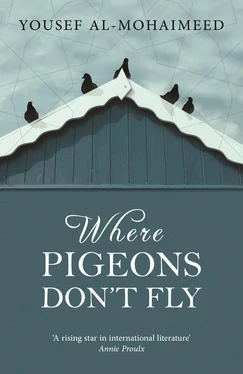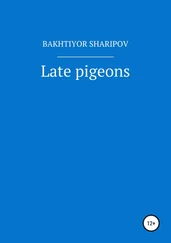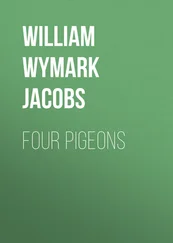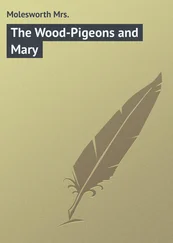‘Just because there’s a brother without faith like Firas here, doesn’t mean I have to agree with him and nor does he necessarily have to believe in anything himself. It’s a personal matter. It concerns him, his relationship with the world and his view of religion,’
Saeed broke in to say that they had come together to say goodbye to Fahd who was travelling to Britain, perhaps to study, and perhaps to emigrate, temporarily or permanently as it might be.
As he began telling them the story of Fahd’s tempestuous life over the last two years a group of bearded men entered the café, led by a portly man whose body jiggled inside his short thaub , the corner of his shimagh dangling down either side of his face. He halted in the middle of the seated patrons. Some hid their shisha hoses beside them while others hung them on the brackets next to the pipes and got up to leave. Fahd was on the verge of walking out when Omar gestured at him to sit down and whispered to everybody: ‘Please, no one leave. I want you to witness what I’m going to do with your own eyes.’
‘Brothers, the sheikh has something to say!’ bellowed one of the men. Most of them were over twenty. Some carried plastic bags full of free cassettes and little booklets; others ringed the fat sheikh with his round red face and groomed black beard.
‘Brothers, not one of you can claim to be a believer until he desires for his brother what he would want for himself, and, by God, I love you all in God’s fellowship and wish for you what I wish for myself! My Brothers — may God guide you — the smoking of shisha , and tobacco in all its forms, is among those things that are proscribed for the harm they bring, as doctors have shown, and is forbidden by the words of Almighty God, may He be praised: “They ask you what is lawful for them. Say: lawful for you are all things pure and good.” And also: “He commands them to do what is just and forbids them from evil; He makes lawful for them what is good and pure and prohibits them from what is bad and impure.” Tobacco and shisha , my Brothers, are amongst those impure things proscribed by God in His Book, for they are the cause of illness and destruction: “Make not your own hands the instruments of your destruction.” And also, “Do not kill yourselves, for God has been to you the Most Merciful.”’
The sheikh talked on for ten minutes amid absolute silence, some even lowering the volume of their mobile phones, giving him a feeling of great satisfaction and importance. As he finished reciting his final verse, Omar raised his hand and in a loud voice that broke the hush, he shouted, ‘God reward you, sheikh! I have a question.’
The sheikh glanced at him for a moment. ‘Please.’
‘Truly, God reward you for that advice, but might we know your name?’
The sheikh looked him up and down sourly and one of his acolytes said, ‘Sheikh Hamoud Bin Abdullah.’
With a self assurance and courage that was the envy of the silent crowd, Omar said, ‘Naturally, sheikh, you would agree with me that you yourself contain both good and evil.’
The sheikh nodded uncertainly. ‘Indeed …’—while his companions lifted their eyebrows in disbelief.
Omar fired his second volley: ‘And of course, sheikh — God reward you on behalf of us all — you will know that there are those amongst us who will be better even than you.’
Then Omar came to the point, speaking with a crazed bluntness: ‘You came here to speak to these guys, most of whom are unemployed, so that they’d give up smoking but you didn’t ask yourself why they’re here. Don’t you know that most of them don’t have work or a hope of finding it, that they’re poor and struggling? Don’t you think, sheikh, that standing up to tyrants, fighting for what is right before an unjust ruler, is more important than taking on the shisha habit of these penniless men?’
The sheikh was staring at Omar, struck dumb by shock. His face reddened and he began to mutter unintelligibly as he made for the exit followed by his bearded men, while Omar continued to scream in a blind frenzy: ‘Sheikh! Don’t turn your tail and run! Come here, I’ve got something important to tell you!’
Some of the young men in the café chuckled and Saeed shouted, ‘A big hand for Sheikh Omar!’
A roar went up, the youths clapping and whistling with a delight rarely to be found in a city whose dust only cleared when a new dust storm rolled in.
‘For shame, Omar,’ Rashed said. ‘You denied them their heavenly reward and the chance to hand out those tapes of theirs.’
‘Can you believe it?’ said Saeed. ‘Everyone’s going to hear about this little session. The minute I get home I’m going to send out the details of what happened.’
Salem agreed. ‘Right. It’s interesting. I reckon it will get a big following.’
Saeed became conscious of Fahd’s unhappy silence and spoke to him as he pointed at Omar. ‘So haven’t you changed your mind about travelling? Instead of pulling out and running off, it’s possible for a guy to confront that lot.’
Fahd shook his head and Saeed went on, ‘I mean, you saw Omar’s bravery; how it made them flee like foxes …’
As Omar preened with pleasure, Rashed objected, ‘Don’t you believe it, my friend. If they could have been certain that Omar wasn’t an undercover cop they wouldn’t have run. They might have made a serious problem for him.’
Saeed agreed with this, as did Fahd. Sipping his tea, Omar pointed out that they were human beings like anyone else: some were genuinely frightened and cowardly, others brave and hungry for fame, well aware that their recklessness might lead to detention or a prison term, and this was what won them supporters and disciples. Some were frankly simple-minded and assumed that these lectures were a way to win heavenly reward. Some even became high-handed and tyrannical, possessed by a need to break and subjugate those around them.
Omar believed that most of his fellow signatories to their most recent statement calling for a constitutional monarchy suffered from a persecution complex that turned them into petty dictators; petty, though their claws were cruel.
‘So I have nothing to lose,’ he said. ‘I can dedicate the rest of my days to exposing them!’
Rashed interrupted. ‘Don’t forget the liberals, Omar. They need exposing, too.’
Omar laughed mockingly. ‘What liberals? Bless you, they’re just lambs to the slaughter. The real game is with the Taliban who are polishing off what’s left of this country, if there is anything left, that is. They’ve invented the liberals out of thin air to justify their iron grip and lead this hapless society of ours to their final solution.’
Fahd gestured to Saeed, who made his excuses to the group, telling them Fahd didn’t have a car and was travelling tomorrow, so they had to go. They went out past the men selling cassettes and CDs at the café door.
The car moved west towards the Dammam Road into Riyadh. It was two in the morning and the traffic around the café had thinned out. Saeed grimaced in disgust. ‘No theatre, no cinema, no public spaces, no streets where you can get a breath of fresh air. Even the cafés have been chucked thirty kilometres out of town. But still they chase after us wherever we go. God help you, where can we go?’
‘What do you expect? The people set free? Left to frolic about unmolested, no one to watch them, no laws to bind them, no rights protected and upheld?’
‘Tell me: where’s the law, anyway? Anyone can stop you and make accusations, force you to sign a confession, or even get you detained or sent to prison.’
Saeed was drumming nervously on the steering wheel as he spoke: ‘Know what, Fahd? There’s this guy at work who was talking about some woman assaulted by the Committee and he says, casual as you like, “Why doesn’t she go and complain to the Human Rights Commission?”’
Читать дальше












